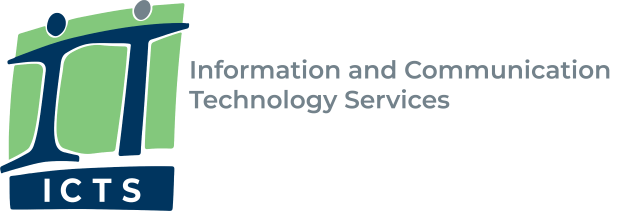Note: There is a ‘sub-use case’ for online courses below.
Applicable to
- Lecturers needing to set up a Microsoft Team to collaborate with each other remotely and with students around teaching and learning (ensuring that this is complementary to Vula or Amathuba but not overlapping with its learning management system role).
- Students wanting to use Teams for group work.
Important: as of January 2025, students can no longer create teams. Teams and groups created before then are not affected and can be accessed as normal. Students can still collaborate via the Microsoft Teams chat functionality, which allows you to communicate with more than one person at a time. You can share files, send messages, and make calls.
When to use
When you need an online collaboration space for lecturers and students within a department/programme.
(Note: Ensure that it complements and doesn't overlap with Vula or Amathuba)
Description
Lecturers and students using Microsoft Teams to facilitate communication, collaborate, share notes, discuss projects, assist each other, and for online meetings and group work.
Recommended tools and tabs
Recommended tools
|
Tool |
Used for: |
| OneDrive |
Note: Permissions to meeting recordings should be managed to ensure that they are only made available to those authorised to access them. |
| SharePoint |
Note: Permissions to meeting recordings should be managed to ensure that they are only made available to those authorised to access them. |
|
Wiki |
|
|
Whiteboard |
|
OneNote |
|
|
Polly |
|
|
Polls |
|
Microsoft Forms |
|
|
Website |
Note: Only secure links (i.e. HTTPS) may be added. |
Recommended tabs
Examples of tabs that might be useful or applicable to different departments or areas.
Note: Only secure links (i.e. HTTPS) may be added.
|
Department |
Title |
Used for: |
|
All academic departments |
Vula and Amathuba (specific Vula or Amathuba site applicable to course/programme) |
|
|
All academic departments |
UCT Libraries |
|
| Other | <other links to websites> |
|
Recommended channels
Examples of channels for academic staff
Channels should be created based on the academic staff group’s specific needs (such as topic, discipline, or subject). However, examples of types of channels that could be created are:
-
General channel for general discussions, operations, miscellaneous items
-
Course administration private channel
-
Tutor private channel
-
Channel per programme/module/stream/course
-
Private channel for private collaboration or discussions between selected members of department or facilitating student group work (a limit of up to 30 private channels)
Good practices for using channels
Selected good practices are listed below, but for a full list, please see the Channels section in the Good practices guide for Microsoft Teams.
|
Area |
Practice/s |
|
Channel names |
Use a reliable and agreed naming convention for channels that will be sustainable in the long run within the team. |
|
Permissions in channels |
Meeting permissions in channels can be set to limit and manage access to meeting recordings to ensure that only those permitted to access recordings can do so. |
|
Private channels |
Use private channels in committees for private discussions between two or more members of the team. |
Features
This list contains features that are available in Teams to better manage your workspace.
-
Communications and chat outside of meetings (using Posts tab)
-
In meetings
Related tips, tricks and FAQs
-
Orientation: Getting to know the Teams user interface
-
Engaging with communication methods within and to Teams (announcements, @mentions, emails to channels or individuals, etc.)
- Comparison between functionality of the browser-based Teams app and the mobile Teams app and the client app.
Get help
- Log an incident
- Log a live events fault
- Create a live event
- Restore a deleted team
- Restore a deleted channel
- Add a team co-owner
- Assign an administrator to a team without an admin or owner
- Request training
Microsoft Teams use case: 1.1: Online short courses
Applicable to
Short course administrators and facilitators needing to set up Microsoft Teams to facilitate short online courses, etc.
When to use
Use when you need an online learning platform for facilitating online short courses and online collaboration.
Description
Platform for presenting and facilitating online short courses/seminars/presentations, etc.
Recommended tools and tabs
Recommended tools
|
Tool |
Used for: |
| OneDrive |
Note: Permissions to meeting recordings should be managed to ensure that they are only made available to those authorised to access them. |
|
Wiki |
|
|
Whiteboard |
|
| OneNote |
|
|
Polly |
|
|
Polls |
|
|
Website |
Note: Only secure links (i.e. HTTPS) may be added. |
Recommended tabs
Examples of tabs that might be useful or applicable to different departments or areas.
Note: Only secure links (i.e. HTTPS) may be added.
|
Department |
Title |
Used for: |
|
All academic departments |
UCT Libraries |
|
|
Other |
<other links to websites> |
|
Recommended channels
Examples of Channels for academic staff
Channels should be created based on the academic staff group’s specific needs (such as by topic, discipline, or subject). However, examples of types of channels that you could create are:
- General channel for general discussions, operations, miscellaneous items
- Course administration private channel
- Channel per programme/module/stream/course
- Private channel for private collaboration or discussions between selected members of department
Good practices for using channels
Selected good practices are listed above, but for a full list, please see the Channels section in the Good practices guide for Microsoft Teams.
Features
See: Features in use case above.
